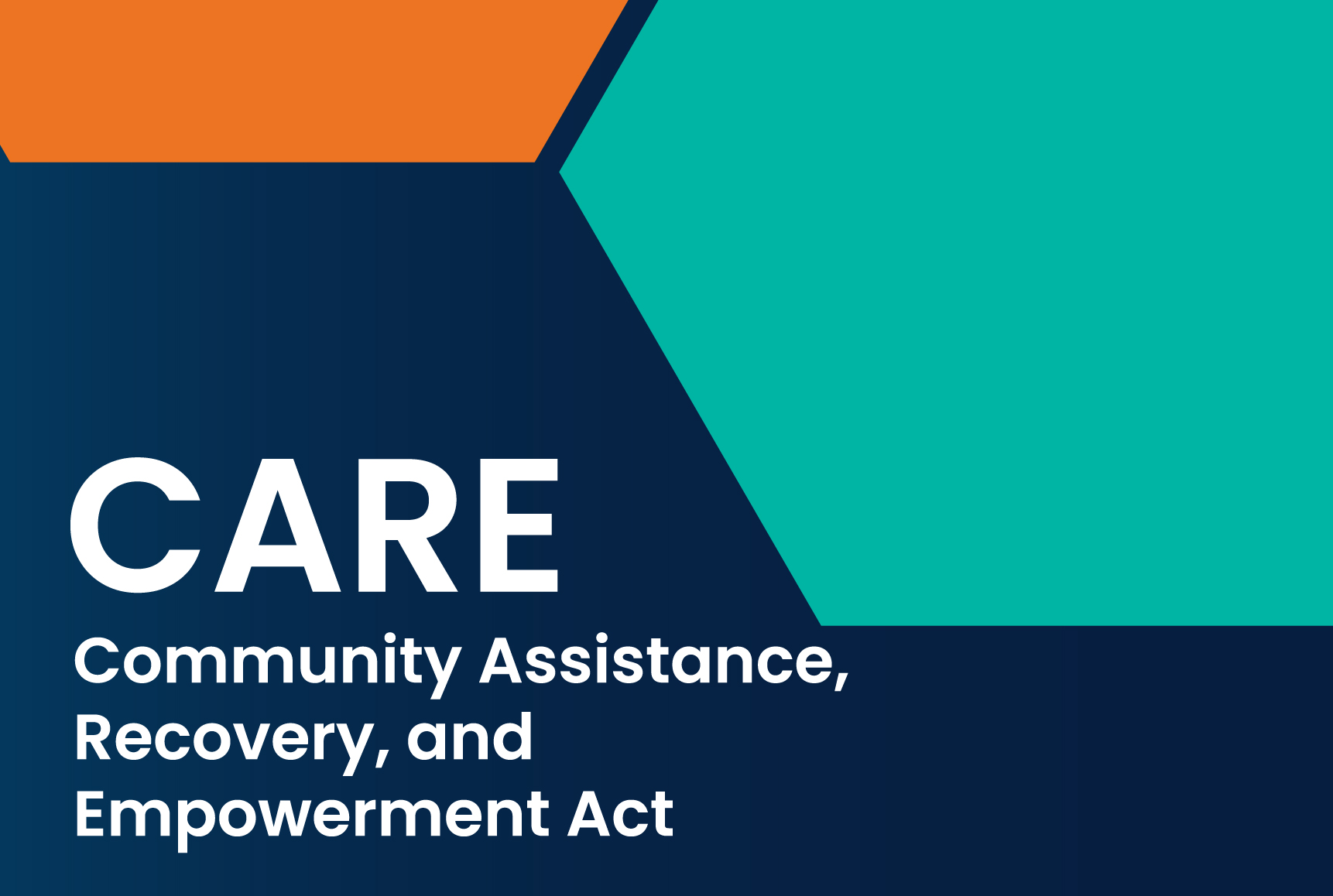Sacramento – CARE stands for Community Assistance, Recovery, and Empowerment. The CARE Act creates a new pathway to deliver mental health, housing, and other supportive services to the most severely impaired Californians who too often suffer in homelessness or incarceration without treatment. CARE petitions may be filed in the counties of Glenn, Orange, Riverside, San Diego, San Francisco, Stanislaus, and Tuolumne beginning Monday, October 2, 2023. Petitions may be filed in Los Angeles beginning December 1, 2023, and in the remaining 50 counties beginning December 1, 2024. Here is what prominent California voices are saying about the launch of CARE:
Dr. Mark Ghaly, Secretary of the California Health & Human Services Agency: “CARE is part of a much larger, multi-year journey that California has been on to transform our behavioral health system through a connected set of efforts designed to build up infrastructure and transform how care is delivered. Together, all of these efforts support counties in prioritizing an extremely vulnerable population of Californians in a strong and thoughtful way.”
Millicent Tidwell, Judicial Council of California Acting Administrative Director: “Supporting the courts as the CARE Act is rolled out over the course of the coming months and years will continue to be a top priority for the Judicial Council of California. Dedicated judicial officers and court staff throughout California are committed to supporting its successful implementation—we appreciate the Governor and the Legislature addressing this issue which is of utmost importance to all Californians.”
Anita Fisher, Family Advocate: “The goal of the CARE Act gives the most vulnerable individuals living with mental health challenges a chance for treatment and recovering a quality of life. It should be no question that we must do this, and do it the right way.”
Dr. Veronica Kelley, OC Health Care Agency Chief of Mental Health and Recovery Services: “The CARE Act is a hopeful step forward in our commitment to support individuals struggling with untreated mental illness. By connecting them with a Care Plan, we are offering hope and a personalized path toward recovery.”
Dr. Matthew Chang, Director, Riverside University Health System, Behavioral Health: “CARE Court adds a new tool in our toolkit to connect individuals to recovery and empowerment, providing hope and support to residents of Riverside County facing severe mental health challenges. Together, we aim to create a more compassionate and inclusive community.”
Presiding Judge Judith C. Clark, Riverside County Superior Court: “The court operates a variety of collaborative court programs in conjunction with county agencies and community-based care providers aimed at addressing the unique needs to specific groups of individuals within our community. The CARE Act is one more way in which the court can help to ensure that eligible individuals are provided with the services and support necessary to address their needs. We look forward to working with each of our collaborative county partners to deliver this program to the Riverside County community.”
Kevin Jeffries, Riverside County Board of Supervisors: “Riverside County’s commitment to behavioral health treatment is unwavering. “While we continue to seek voluntary treatment at all times, this new CARE Court tool may put us in a better position to help more people – those who just may need it the most.”
Nora Vargas, San Diego County Board of Supervisors: “I’m excited for our County to be a leader in launching this new program. We want to make sure that the public is aware how this latest tool may help them. If our community doesn’t know how to access this latest resource, they can’t leverage it.”
Judge Kimberlee Lagotta, San Diego Superior Court: “The San Diego Superior Court is well prepared to begin reviewing petitions and working with the County, individuals and their counsel on both eligibility and the best plan going forward for those who take part in CARE Act proceedings.”
Dr. Luke Bergmann, Director of San Diego County Behavioral Health Services: “County Behavioral Health Services (BHS) has assembled a team to support the launch of the CARE Act program with our partners. Collectively, we will improve the lives of eligible people in our community, while also offering important existing resources and help to others.”
London Breed, Mayor of San Francisco: “Too many people in our City are suffering without being able to access the care and support they need to get their lives on the right track. While this program is voluntary, it provides direct access for people to get connected to services and for them to be referred to that care by those who know them best. We are committed to finding ways to strengthen our entire behavioral health system, from voluntary to involuntary options, and CARE Court is part of that program and we are ready to accept people and get them the help they need.”
Rafael Mandelman, San Francisco Board of Supervisors: “Since joining the San Francisco Board of Supervisors I have kept a list of some of the sickest folks living on the streets of my District. I have tracked the relentless cycling of too many of these listees from the sidewalk to 5150 holds to arrests and around and around. Some have died; some have assaulted or killed others. Too few have received the care they would need to permanently exit the streets. CARE Court is not a panacea for California’s mental health woes, but it offers one more tool to get care to very sick people whose illness prevents them from seeking or otherwise accepting help.”
Dr. Grant Colfax, San Francisco Director of Health: “CARE Court provides a tool for the City to help people with serious mental health issues, like untreated schizophrenia or other psychotic disorders. This additional tool is another access point to help people have more stable and healthy lives.”
Tony Vartan, MSW, LCSW, Stanislaus County Behavioral Health Director: “The Care Act represents a crucial step forward in providing assistance to a segment of our population with great need. While it may only be applicable to a specific group, it is a powerful tool that can make a profound difference in the lives of individuals who may otherwise not seek treatment voluntarily. We deeply appreciate the ongoing collaboration and involvement of the State (CalHHS) in working closely with counties to prepare for the implementation of the Care Act. This partnership highlights our shared dedication to improving the mental health and well-being of our residents.”
BIGGER PICTURE: The CARE Act is part of a much larger connected set of behavioral health reforms that include actions taken over the last few years, as well as efforts underway today. Combined these effort will transform the way care is delivered while also building the infrastructure and workforce needed.
The State has invested more than $10 billion in resources to strengthen the continuum of community-based care options for Californians living with the most significant mental health and substance use needs. These programs and proposals complement and build on California’s other major behavioral health initiatives, including but not limited to the California Advancing and Innovating Medi-Cal (CalAIM) initiative, the California Behavioral Health Community-Based Organized Networks of Equitable Care and Treatment (BH-CONNECT) Demonstration proposal, the Behavioral Health Bridge Housing program, the Children and Youth Behavioral Health Initiative (CYBHI), Medi-Cal Mobile Crisis and 988 expansion, and the Behavioral Health Continuum Infrastructure Program (BHCIP).
###


